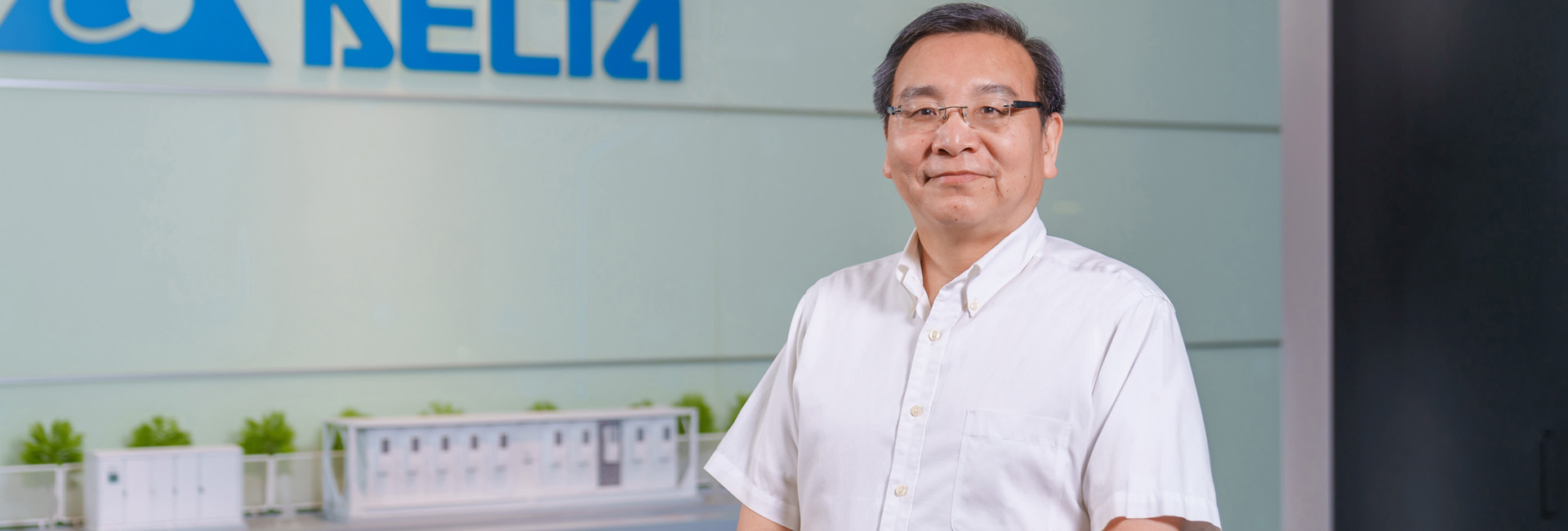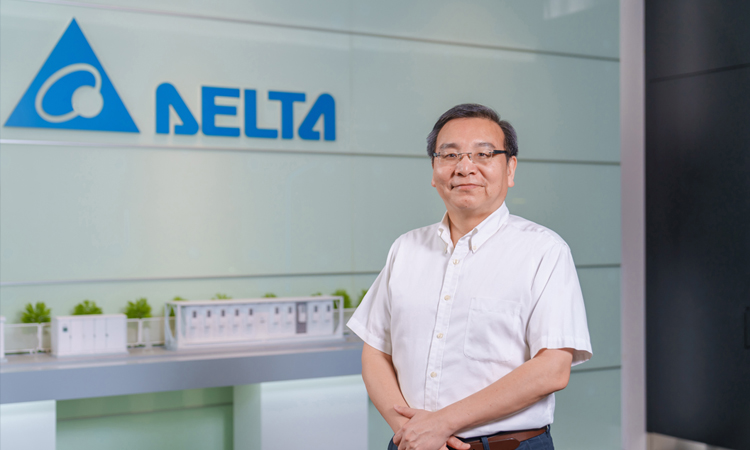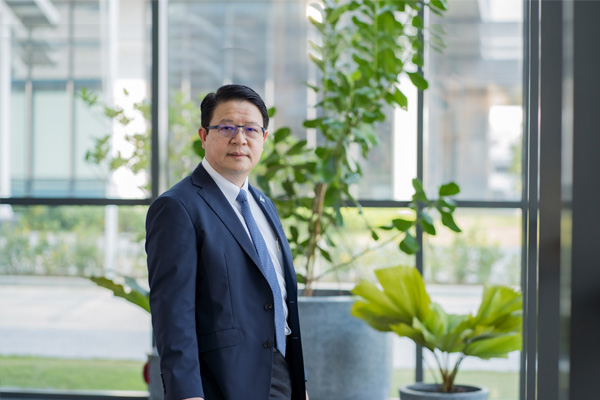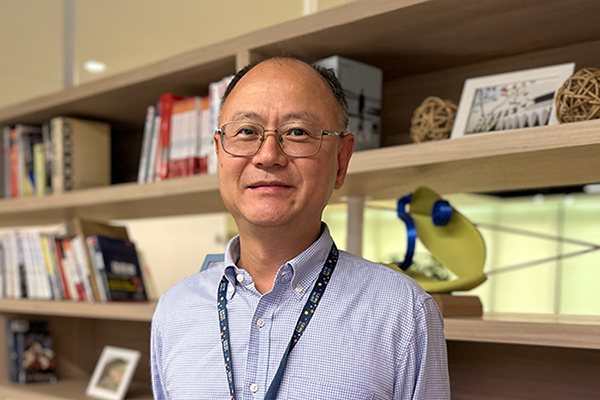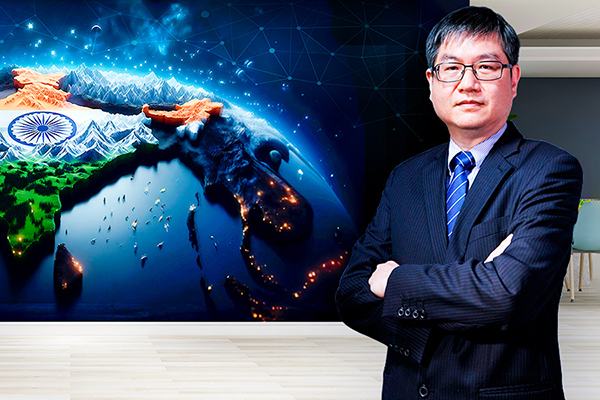The DRC 2.0 facilitates the next-next-generation development of products or technologies
Established in 2013, the DRC 1.0 in its first phase up to 2021 mainly worked on digital transformation, including improving technologies required in operational processes, IT services, and manufacturing processes. In 2022, the DRC will enter its second phase, DRC 2.0, with a focus on the research and development (R&D) of Delta's next-next-generation products or new technologies.
"Our R&D capacity for the DRC 2.0 blueprint is systematically divided into three horizons," said President Chiueh, explaining how Delta develops new R&D projects through an internal division of labor. "Horizon 1 is responsible for developing Delta's next-generation products, which is the scope of each business group’s R&D. Horizon 2 is led by the DRC and focuses on next-generation products. Horizon 3 refers to R&D in more than five years, such as innovation of technology and materials, which are not directly related to the existing products but are of significant influence. Horizon 3 is carried out by the CTO Office in close collaboration with outside R&D talents together with the DRC.”
Software capabilities are the core to enhancing hardware competitiveness
Building on hardware, Delta has outstanding engineers and strong R&D capabilities in the fields of optical, mechanical, and electrical applications, while the DRC focuses on software R&D, including artificial intelligence (AI) and information and information communication technology (ICT) to make Delta's hardware more competitive. "Through enhanced software and market development, DRC has worked with business groups to extend DRC's R&D projects to the business groups' operations," President Chiueh further shared his plan.
The first approach "enhanced software" is to reinforce the software of the business groups' products. "We aim to reinforce the software of business groups' general products. For example, the DRC has built a predictive maintenance (PdM) system for the Industrial Automation Business Group (IABG)," said President Chiueh. He continued that PdM enables both equipment and machinery to be predictive, which can notify clients of maintenance or replacement when it is needed. The application fields include manufacturing equipment, energy storage equipment, and data centers. "We hope that Delta's hardware will not only be equipped with the PdM function, but we can build a corresponding digital twin prediction model to enhance the competitiveness of the equipment and optimize the clients' operating performance."
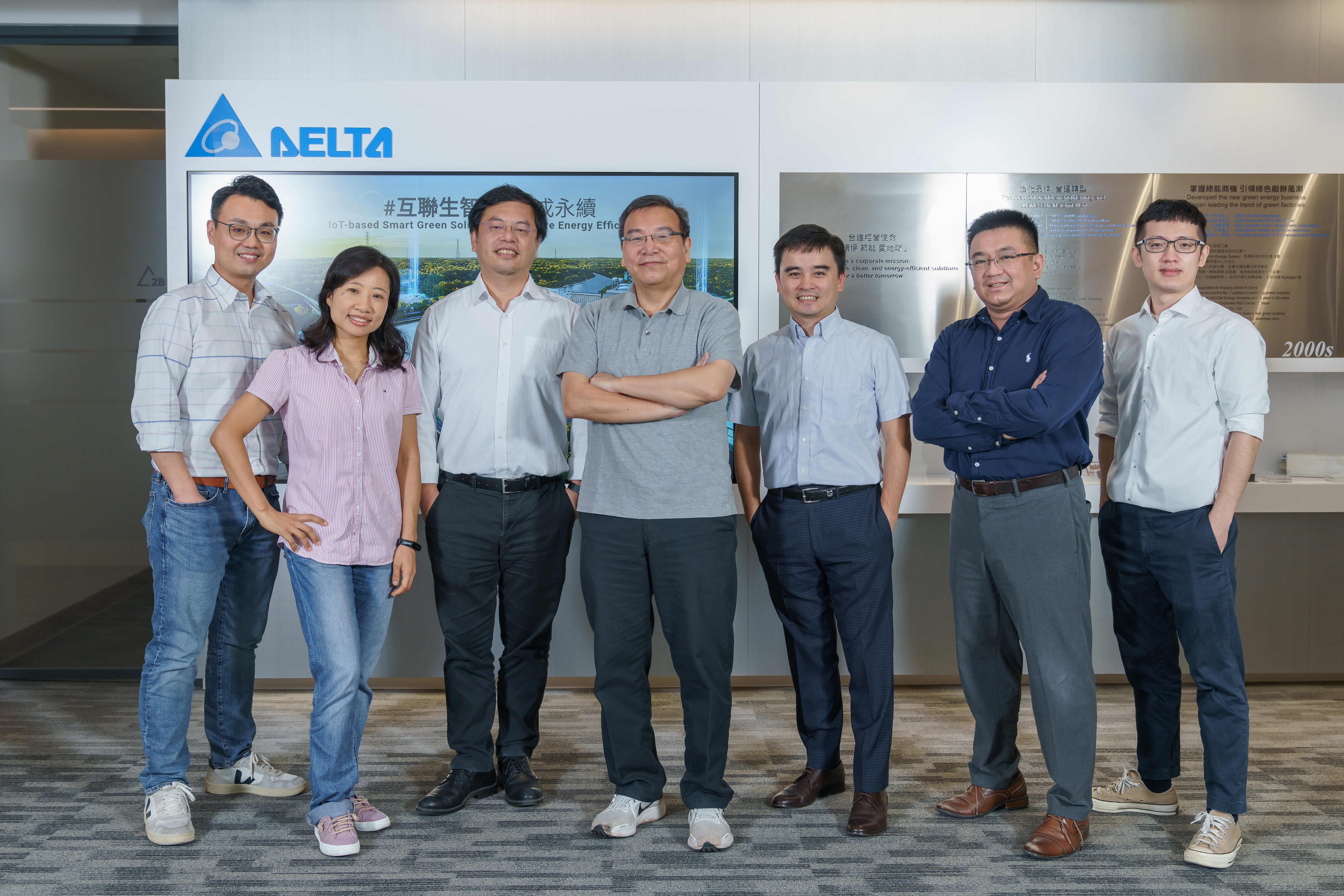 President Chiueh (middle), Dr. Lai from EISBG (third from left) and the PdM, the Digital Twin, and the BDO teams have collaborated in R&D for months to enhance the competitiveness of equipment and optimize the business units' operational performance.
President Chiueh (middle), Dr. Lai from EISBG (third from left) and the PdM, the Digital Twin, and the BDO teams have collaborated in R&D for months to enhance the competitiveness of equipment and optimize the business units' operational performance.
The second approach "market development" refers to assisting business groups in developing new technologies or new products. "The DRC is trying to develop new products in markets where Delta occupies a small share," President Chiueh added. "The DRC consists of nine laboratories, four of which are located in the Industrial Technology Research Institute (ITRI) in Hsinchu, with a focus on the development of product lines that Delta has not yet set up, including WIFI radar technology, battery arrays in the energy storage system architecture, drone applications, and robotic coaching match videos to identify body movements and give users timely guidance.”
President Chiueh hopes that the DRC can keep pace with the times. If a software design is developed by a business group, the DRC will conduct research in more advanced fields, enabling both DRC and business groups to leverage respective advantages in given professional fields. Chiueh said, "There are many software designers in Delta's business units, most of whom engage in the development of embedded systems. Such applications are widely adopted in automation solutions, electric vehicles, and heat dissipation management, which have gradually become more systematic. Before collaboration, the DRC will first identify both parties' research fields so that the fields will not overlap, and we will focus more on the R&D of advanced technologies.
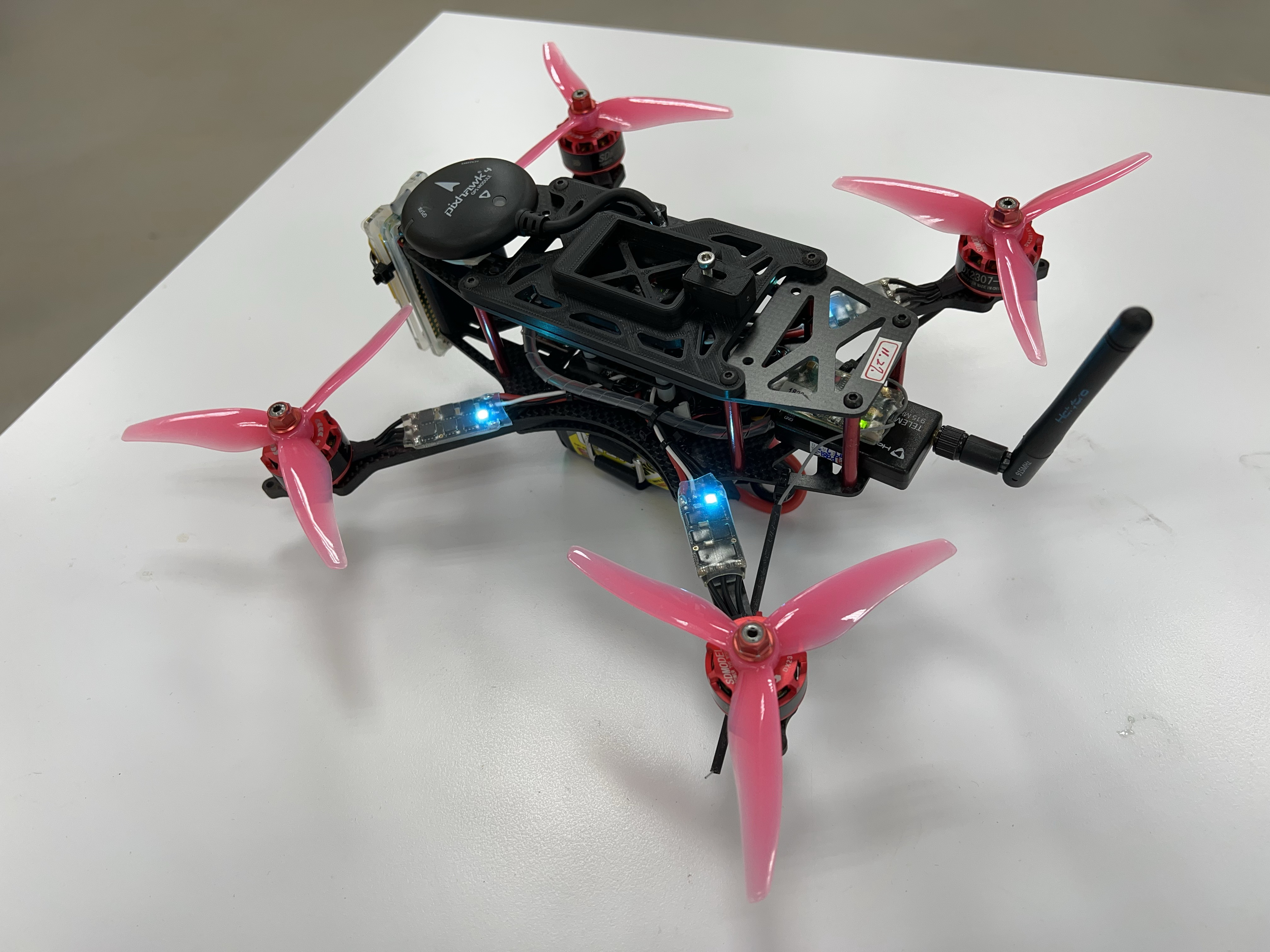 |
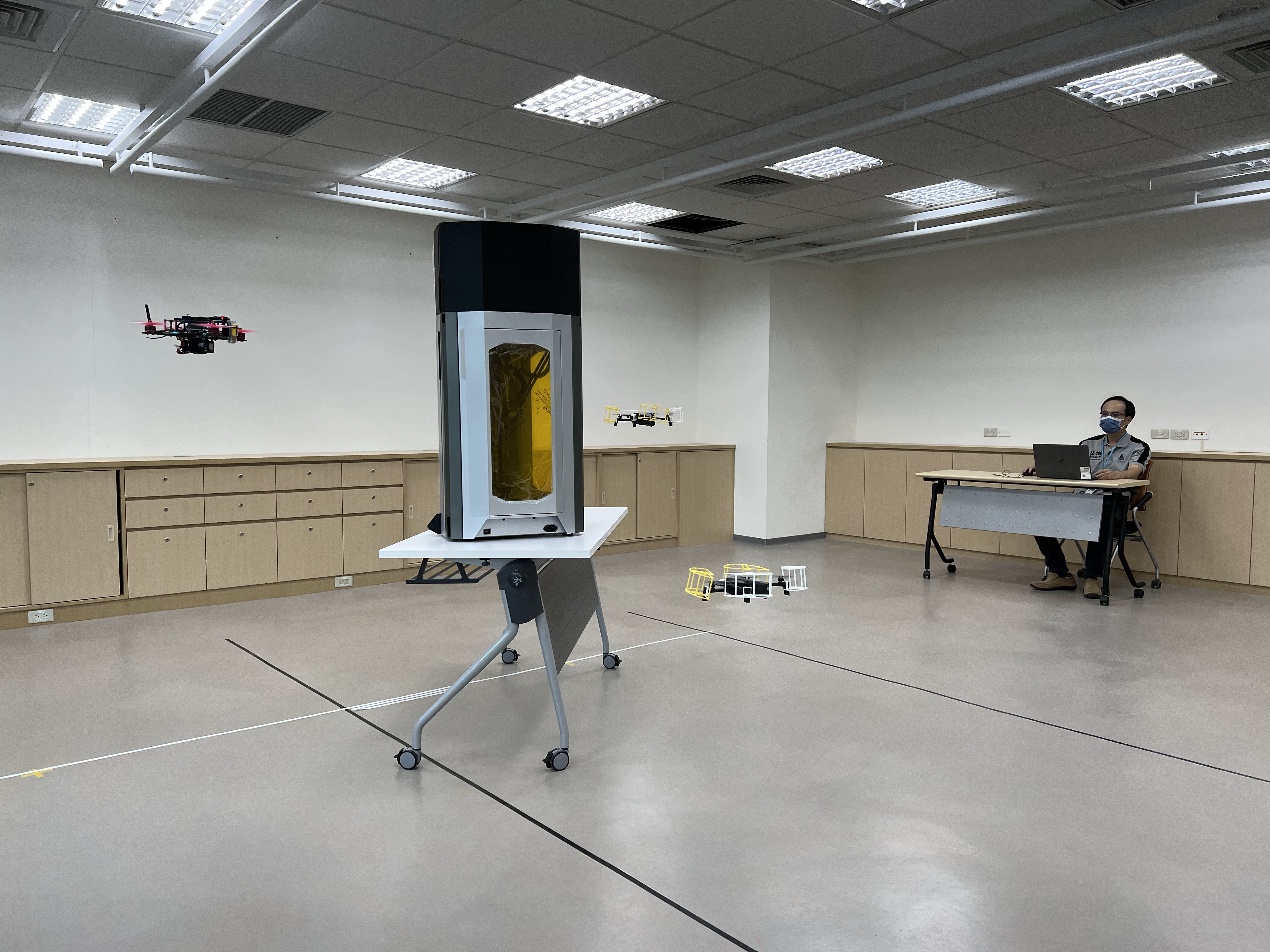 |
DRC team focuses on exploring drone applications.
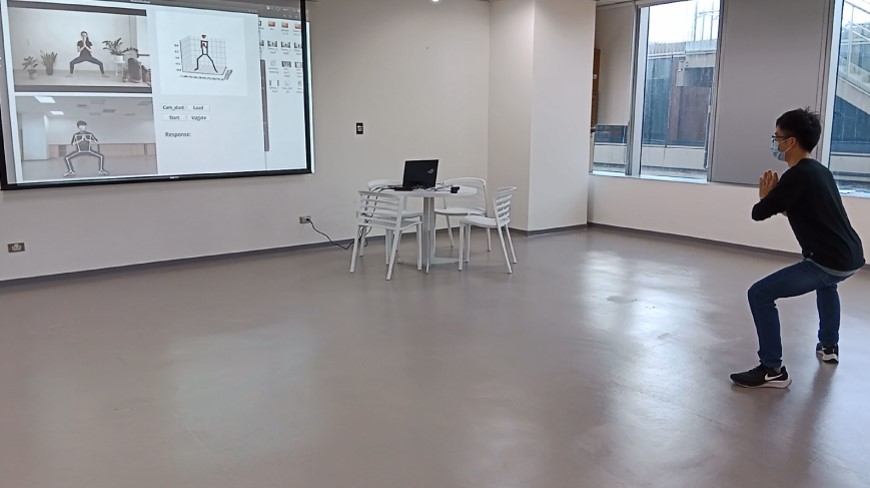
The robotic coaching can match videos to identify body movements and give users timely guidance.
Interdepartmental collaboration strengthens R&D and operations management
In addition to working with business groups in software development, President Chiueh stated that the DRC has recently launched projects with corporate function departments, such as the Information Technology Department and the Legal Affairs Department to upgrade their work management.
With a digital transformation strategy in place, computing resources have been gradually moved to the public cloud. Recently, the DRC and the Information Technology Department have collaborated to optimize the public cloud through the DRC's cloud technology to significantly reduce the public cloud maintenance cost. Meanwhile, the DRC has greatly improved the daily document review process for the Legal Affairs Department. President Chiueh stated that the DRC was dedicated to the development of natural language technology as early as ten years ago and recently applied it to legal documents. For example, it can extract structured data from the regular legal materials in court judgments through natural language analysis technology to reduce the Legal Affairs Department's required manpower and time costs. Hopefully, it can be applied to more contract documents in the future, to gradually automate the process and improve management efficiency.
Strive toward excellence by taking the hard road
President Chiueh, who had worked at ITRI for 12 years, has extensive experience in academia and industry. He shared with us how his mindset has changed after stepping into the industry from ITRI. "When I first arrived at Delta, I was shocked by the wide variety of product lines. I thought that CEO Ping Cheng's goal of realizing reusability and modularity in product R&D could only be achieved theoretically. However, after learning about Delta's business model and product lines in-depth, I realized that it was something that should be done." President Chiueh then added that a wide variety of product lines can work with each other through knowledge management and sharing, thereby cutting R&D costs. In this way, Delta can cope with different business cycles and create a new business model.
In addition to observing the business model, President Chiueh, who has worked at Delta for less than a year, has experienced Delta's culture firsthand. "The founder Mr. Cheng's dedication to and passion for technology have left a deep impression on me!" President Chiueh said that in addition to his pursuit of advanced technology, the founder's insistence on continuous innovation has influenced all of Delta's employees.
At the end of the interview, our team asked President Chiueh to share his life motto. "The more difficult the better. Start by taking the hard road. As long as one is determined and does not take shortcuts, they will eventually succeed." Such a fearless spirit echoes the philosophy of Delta's management team and is aligned with Delta's corporate culture of pursuing innovation. Under the leadership of President Chiueh, the prospects for DRC 2.0 are promising!




